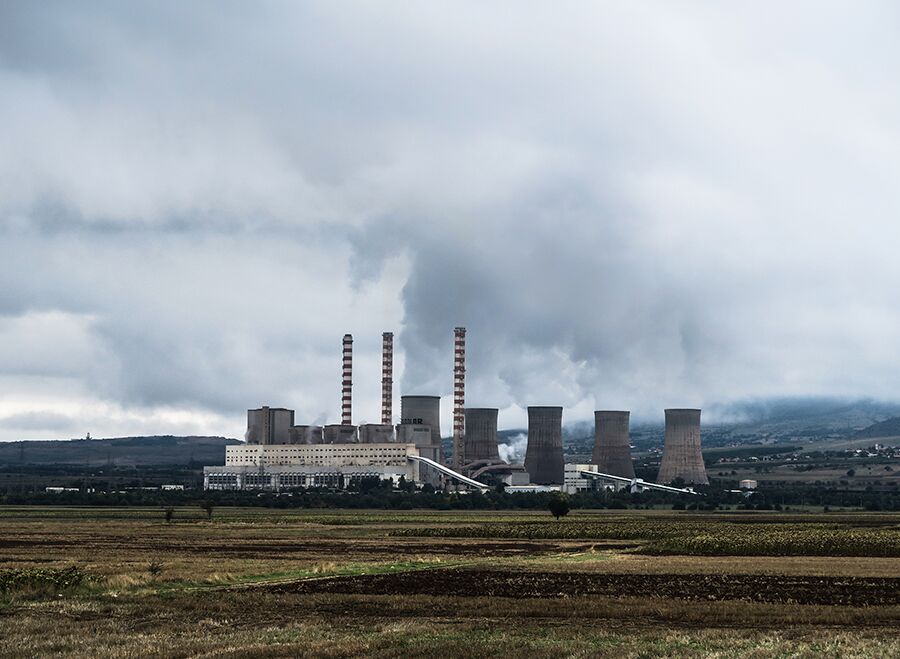With all the troubles in the world, no business can be solely about making money. We all have to do our little bit to try and make things better, and one area that often – deservedly – receives a lot of attention is trying to tackle environmental issues. This is particularly relevant and beneficial because so many businesses do so often add to rather than help combat climate change.
One way that is becoming increasingly popular among businesses, and individuals too, is carbon offsetting. This is essentially where companies can pay for the carbon emissions they cause to be neutralised, by offsetting them elsewhere. For example, if somebody had to take a flight to a meeting, they would use an offsetting website to calculate how much carbon that flight had added to the atmosphere, and pay for a project designed to reduce future emissions, for example by distributing low-energy lightbulbs to towns in Chile. There are also products available which include carbon offsetting in their price, which means you don’t even have to opt-in to neutralise your impact, it is done from the moment of purchase, or possibly even production.
It sounds logical, but has proven to be massively controversial among businesses and environmental activists. Many different concerns have arisen which call into question the actual benefits of carbon offsetting.
Is it all a scam?
A lot of people mistrust offsetting companies and businesses which advertise themselves as carbon-neutral. For many, carbon-offsetting is doing nothing more than selling people peace of mind and the ability to create a positive image for their brand. A writer named George Monbiot even likened the sale of carbon offsetting to the Catholic church’s past policy of allowing people to buy indulgences, thus paying for absolution for their sins.
An argument has been made that businesses looking to reduce their carbon footprint should simply do that; work to produce fewer emissions and make the overall running of their business greener. Purchasing carbon offsetting does nothing to reduce the amount of pollution you actually produce.
The fact is, carbon offsetting projects generally don’t take into consideration any other type of environmental impact other than carbon emissions – and there are a lot of other issues that deserve consideration and attention.
Some even argue that they irresponsibly, potentially purposely, distract attention away from bigger environmental issues (sometimes perhaps so that we continue consuming damaging products). For example, carbon offsetting isn’t going to do much to help the irreversible melting of ice caps, or fix the incredible damage that has been done to a huge amount of environments through things like trying to reach and transport petrol, and so on.
Or is it truly well-intentioned?
Many issues were pointed out regarding the value of planting trees as a way of offsetting carbon emissions.
But these were rapidly addressed, with most companies turning their attention to more beneficial schemes, ranging from giving out more efficient cooking stoves to capturing methane given off at landfills.
The claim that people simply pay for carbon offsetting to avoid having to make actual changes to their destructive behaviour has also been largely discredited; the companies behind the schemes insist that their customers are not only using their schemes, but also taking measures that will directly reduce their carbon emissions.
In even more simple terms, the mere existence of these schemes is surely a positive even just in raising awareness about the issues and the simple actions we can take to do our bit. Even individuals can take care of some of their own carbon offsetting – using a low energy lightbulb for six years will save as much in carbon emissions as a short flight would have caused.
What’s more, carbon offsetting can act in a similar way to a carbon tax, creating financial incentive for companies to make an effort to be greener. The fewer emissions you are responsible for, the less you have to pay in carbon offsetting! So the two ideas can work together – offset what you do cause, and try to reduce it at the same time.
Another accusation that has been made against these schemes is the fact that in general, they sell future reductions in carbon emissions, whereas it would be much more valuable to save a tonne of carbon today than in three years’ time. However, thanks largely to the popularity of the schemes, some offsetting companies have enough capital to invest in projects before making the sales: they then only sell carbon savings which have already been made.
Additionality
This is one of the biggest issues surrounding carbon offsetting. It is the basic idea that you cannot ever fully prove that the actions taken to reduce carbon emissions would not have happened anyway, even without the scheme. Nobody can be absolutely sure of what will happen in the future, or how things would have gone if the scheme had never been put into place.
However, a lot of offsetting companies are addressing these concerns too, by guaranteeing their emissions savings. By offering this guarantee, they give confidence to the purchaser of the offsetting that their money will truly lead to a reduction in emissions: if the project for some reason doesn’t work, or provide as much of a reduction as it should have, or if it is proven that it was ‘non-additional’, then the company will make it up through another project.
So is it worth doing?
Carbon offsetting is by no means a perfect scheme. But then, who could point to a scheme that is? Ultimately, it is doing good. People may argue it deflects attention from more pressing problems, but in reality more focus is being placed on environmental issues and corporate responsibility to address them.
Such projects even provide the opportunity to not only offset specific activities, but pay for more and more offsetting so that you are actually constantly shrinking your business’s carbon footprint, and helping to expand these environmentally driven projects. By making it a more popular, bigger, and more respected industry, you will help to encourage similar efforts to spring up everywhere.
People opposed to carbon offsetting insist that these are projects that should be happening anyway, and that companies should be doing their own work to reduce their carbon emissions. However, simply arguing something should be happening doesn’t mean that it is, and by purchasing carbon offsetting you would be helping set the wheels in motion in the right direction. As more companies offset their emissions, it will become more and more crucial for every company to do the same, and to take other actions to be greener. Ultimately, a great deal of good could be done. It might not save the world, but it is certainly a step in the right direction.
Conference Calls
One of the big contributors to carbon emissions is travel. If your company can cut down it’s travel then it will not only help the environment but save costs as well.
WHYPAY? can offer you free conferencing services to make those calls even cheaper. Give it a try now.
Generate your 1st FREE Conference »
We don’t require an email address or any other information.
Just click the button and you’re ready to go!




